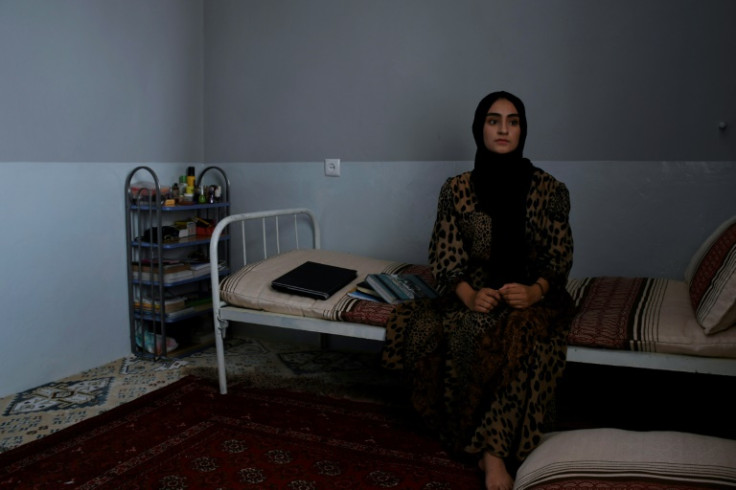Anxiety, Isolation And Depression Worsening Among Afghan Women: UN Report

KEY POINTS
- The mental health of Afghan women deteriorates due to Taliban-enforced restrictions
- Nearly 70% said feelings of anxiety, isolation and depression significantly worsened between April and June
- 48% said their relationships with male family members have worsened
Women in Afghanistan are experiencing a decline in their mental health as Taliban-enforced restrictions curtail their freedom and position in society, according to a joint report from three U.N. agencies.
In the report, based on responses from 592 women across 22 of Afghanistan's 34 provinces, 69% of respondents said feelings of anxiety, isolation and depression significantly worsened between April and June. This is an increase from 57% in the preceding quarter of January-March, according to the report from UN Women, the International Organization for Migration and the United Nations Assistance Mission in Afghanistan.
1/4 Afghanistan is in the midst of a mental health crisis precipitated by a women's rights crisis. pic.twitter.com/uJAgtkSDUd
— UN Women Afghanistan (@unwomenafghan) September 19, 2023
Since the Taliban seized power in 2021, women have faced mounting restrictions, including a ban on girls attending secondary schools and universities. Afghanistan is the only country in the world with restrictions on female education. Women are also not allowed to work in most sectors.
Taliban authorities, in the past, said they stopped girls' education beyond the sixth grade because it didn't support their interpretation of Sharia or Islamic law.
The women, whom the UN team met, frequently described their lives "as that of prisoners living in darkness, confined to the home without hope of a future."
More than 50 decrees have been introduced by the Taliban. It has become increasingly common for women who allegedly defy these decrees to face harassment, intimidation and violence on the streets at the hands of both Taliban and ordinary men, the UN report said.
The ripple effects of Taliban-enforced restrictions have also led to the dramatic shrinking of women's influence in decision-making over the last six months at all levels, including the household, extended family, community, provincial and national levels.
Women said their influence in decision-making at the household level decreased from 90% in January to 16% in June.
2/4 There are no women in any of the in-country decision-making bodies in today's Afghanistan. And the power women have in their homes is drastically going down as well. pic.twitter.com/86rBWvvEnl
— UN Women Afghanistan (@unwomenafghan) September 19, 2023
A number of women also lost a key source of income, which consequently led to a string of challenges of its own. In June, 80% of women said their ability to undertake income-generating activities has decreased. It was 75% in April.
The ongoing situation has also increased family conflict in Afghan homes. Between April and June, 48% of women said their relationships with male family members worsened in comparison to 39% between January and March this year.
© Copyright IBTimes 2024. All rights reserved.






















